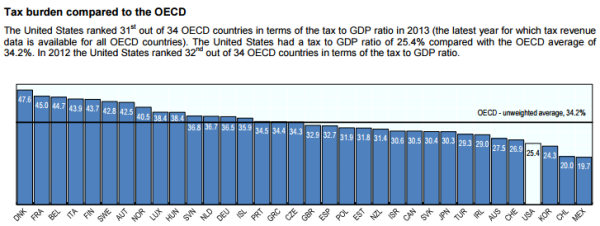Stronger automatic stabilizers would improve stability and foster growth
Marco Buti of the European Commission and Vitor Gaspar of the International Monetary Fund argue that given today’s complex and uncertain economic environment and constrained monetary policy, stronger automatic stabilizers can offer more stability and better economic growth. To achieve this, they propose tying corporate and individual income taxes to current (as opposed to past) year earning, improving the design of unemployment benefits , legislating tax incentives for investment that kick in automatically during recessions, as well as transfers to local governments during recessions.
Emerging markets most vulnerable to Fed liftoff effects
Analyzing the previous five Fed liftoff episodes, International Monetary Fund economist Swarnali Ahmed finds that emerging market economies experience significantly stronger side effects than advanced economies, primarily through capital outflows occurring in anticipation of a rate hike. Ahmed adds that to some extent, greater monetary policy independence and lower budget deficits can help to dampen these outflows.
Expenditure-focused fiscal rules most effective in reducing procyclical fiscal policies
Calculating a measure of fiscal space—the difference between maximum sustainable debt and current debt—for 27 European Union countries between 1990 and 2014, Carolin Nerlich of the European Central Bank and Wolf Heinrich Reuter of the Vienna University of Economics and Business find that fiscal rules are strongly associated with higher levels of fiscal space. The authors also find that greater amounts of fiscal space are positively correlated with procyclical fiscal policies, but note that this link appears to weaken when fiscal rules are in place. Rules limiting expenditures have the greatest impact, with balanced budget rules having a smaller effect.
Chart of the week: Only 3 OECD countries have a lower tax burden than the US

Quote of the week: ECB remains dedicated to hitting inflation target, but international developments complicate that goal
[W]hen it comes to our inflation objective, I’m really determined. I’m a hardliner on this point. And we as the ECB are ensuring that the necessary degree of monetary policy easing will be maintained in order to achieve the goal. But there are two big uncertainties: developments in the emerging countries and the effects of the interest rate turnaround in the US. As regards the emerging countries, we have arrived at the third phase of the great financial crisis. It started in the US, continued in the euro area and now it has reached the emerging economies. It’ll take a long time to overcome. I would not be so concerned about this if the position of the euro area were more robust, but unfortunately it is still very fragile.
—Peter Praet, Member of the Executive Board of the European Central Bank
The Brookings Institution is committed to quality, independence, and impact.
We are supported by a diverse array of funders. In line with our values and policies, each Brookings publication represents the sole views of its author(s).



Commentary
Hutchins Roundup: Automatic stabilizers, liftoff effects, and more
December 17, 2015